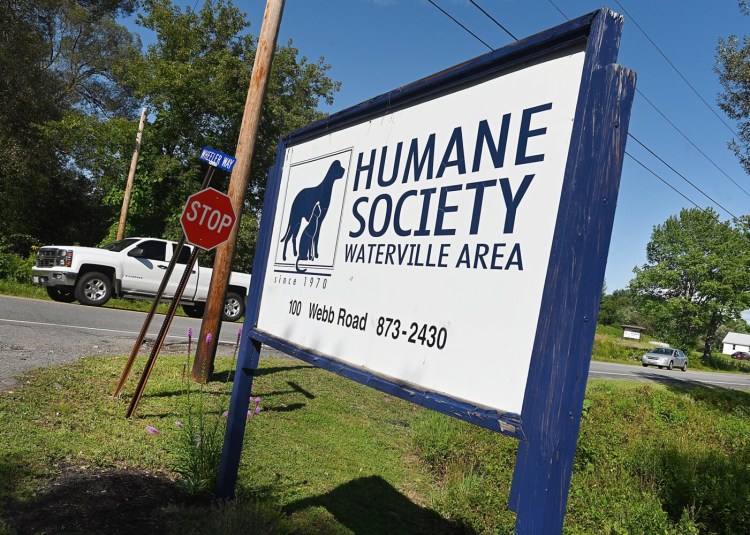WATERVILLE — The Humane Society Waterville Area has cut its dog and cat population of 200 by nearly half as it continues to treat 36 animals for illnesses since the shelter closed late last month because of the outbreaks.
A team of veterinarians confirmed some cats were suffering from ringworm and upper respiratory infections and some dogs had kennel cough. The animals were quarantined and officials worked with the Maine Federation of Humane Societies and the Animal Refuge League of Greater Portland to move many animals to other sites, according to Malena Gatti, a member of the Humane Society’s board of directors.
“We have 129 animals in-house,” Gatti said Monday. “Of those, we have 21 cats being treated for ringworm, 10 cats being treated for URI (upper respiratory infection), and five dogs being treated for kennel cough.”
When the shelter closed its doors temporarily, its executive director, Lisa Oakes, left her job, though neither she nor Gatti would say why at the time, citing confidentiality reasons.
Asked Monday what happens now in terms of finding a replacement for Oakes, Gatti, the Humane Society spokesperson, said she did not have an update in that regard.
“As for a director search, since we’re still under quarantine, our primary focus right now is still bringing the animals in our care back into good health,” she said. “Concurrently, the board is also in the process of reviewing organizational policies and procedures to improve our operations and quality of care.”
She said that some of the procedural changes the shelter already has implemented are improving sanitary procedures and standards of practice.
“Our new policies were developed in consultation with partner shelters, and our staff has been wonderful in transitioning their duties to better meet these standards,” Gatti said. “We’re also in the process of reviewing our transport policy in order to minimize the possibility of an animal overpopulation in the future.”
On Aug. 2, Gatti reported that the shelter’s board of directors had asked the state July 28 to inspect the shelter due to concerns it was overpopulated with animals and there might be procedural deficiencies. State Animal Welfare Program officials inspected the facility and confirmed there were 200 animals, which was considered an overpopulation, and those officials were concerned about illnesses in some animals, Gatti said.
The shelter “is so grateful for all the community support we’ve received thus far, and for anyone who would like to continue supporting us, we are currently in need of volunteers,” Gatti said Monday. “We’re in the process of assessing specific volunteers’ needs, and plan to share details about this soon via our Facebook page.”
By Aug. 2, the number of animals at the Waterville shelter had been reduced from 200 to 145, and the goal was to decrease that to 90, Gatti said at the time.
The Humane Society posted on its Facebook page that day that of all animals in-house, 20% were undergoing medical treatment for outbreak-related illness. Twenty-one cats were undergoing treatment for ringworm, five were cats were being treated for upper respiratory infection and four dogs were being treated for kennel cough.
Shelter officials were working to ensure scheduled spaying and neutering, booster shots and other medical needs would be met and that foster families and those who recently adopted pets were aware of the situation in case the animals exhibited symptoms potentially associated with the outbreaks.
Send questions/comments to the editors.




Comments are no longer available on this story